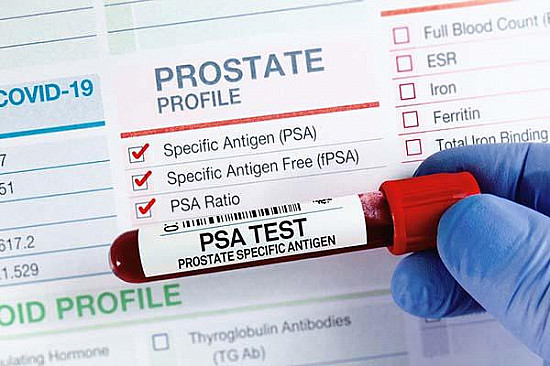Erectile dysfunction drugs may protect against penis shrinkage after prostate surgery
By Charlie Schmidt
Does size matter? When the issue is penis size, many men would answer yes. So even the possibility that radical prostatectomy (an operation to remove a cancerous prostate gland) could shorten the penis is understandably troubling to men who face that operation. The true effect isn’t known: some studies have reported a temporary shortening of the penis averaging at most a half-inch or so after prostate removal surgery, while others have reported no change in penis size.
Now one of the largest investigations to date, published in a May 2014 supplement to BJU International, has found that while some men do end up with a slightly shorter penis after radical prostatectomy, taking a low dose of an erectile dysfunction drug like sildenafil (Viagra) or tadalafil (Cialis) every day or a higher dose twice a week might prevent that from happening. The take-away point? Having erections after surgery may preserve penis size, possibly by increasing blood flow.
“It’s becoming increasingly clear that having erections—and the consequent improvement in the oxygenation of penile tissues—helps improve sexual rehabilitation after prostate cancer surgery,” says Dr. Marc B. Garnick, a clinical professor of medicine at Harvard Medical School, an oncologist at Beth Israel Deaconess Medical Center, and editor in chief of Harvard Medical School’s Annual Report on Prostate Diseases. “The current study shows that routine use of an erectile dysfunction drug is helpful in this respect.”
Investigators from the Memorial Sloan Kettering Cancer Center in New York City recruited 118 volunteers to participate in the study. All were getting ready to undergo prostate removal surgery. A male nurse measured each man’s flaccid penis before the operation, and then again at two and six months after the operation.
Roughly half of the men experienced no change in penis length. Most of the rest lost about one-tenth of an inch (2.5 millimeters) in length, but had recovered to their pre-surgery size by six months. A small group of men—roughly 5%—had a persistent loss of at least one-third of an inch (one centimeter). Of these, the men who took an erectile dysfunction drug every day (which is increasingly recommended as part of post-prostatectomy care) were back to their pre-surgery sizes within six months, while those who didn’t take an erectile dysfunction drug continued to have slightly smaller penises than before the surgery.
According to the researchers, the shortening was minimal “and almost certainty not clinically meaningful,” meaning that it probably had no effect on sexual intercourse or a partner’s satisfaction.
Causes unclear
It isn’t clear how prostate removal surgery might shorten the penis. One possible explanation is that nerve injury during the operation causes muscles in and around the penis to contract. That idea is supported by earlier studies showing that efforts to spare nerves during surgery can protect against penis shrinkage.
The new study has some advantages over earlier ones. It followed the volunteers for longer than most earlier studies. In addition, all of the measurements were made by just one nurse, while earlier studies often used several nurses. That helped minimize the possibility of inter-observer variability. But there were also problems with the study, especially that half of the men who volunteered didn’t follow through and have all of the post-prostatectomy measurements.
Shortening of the penis can happen with other prostate cancer treatments beside prostatectomy. Some men who have radiation therapy or hormone therapy notice it, too. The results of the Memorial Sloan Kettering study support the idea that men should counseled about potential losses in penis size from prostate cancer treatment and be encouraged to take an erectile dysfunction drug to keep it from happening.
“The current study should focus more attention on this important topic,” says Dr. Garnick.
About the Author
Disclaimer:
As a service to our readers, Harvard Health Publishing provides access to our library of archived content. Please note the date of last review or update on all articles.
No content on this site, regardless of date, should ever be used as a substitute for direct medical advice from your doctor or other qualified clinician.















